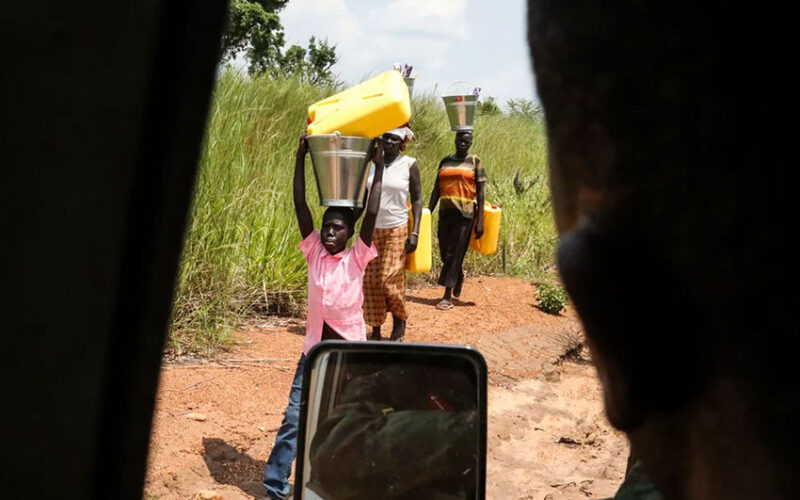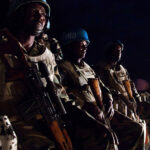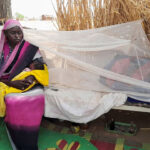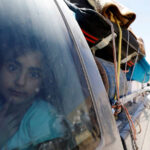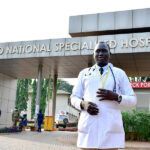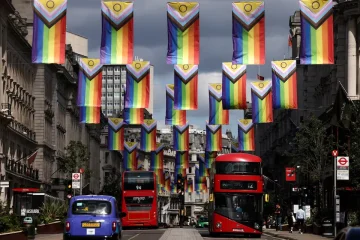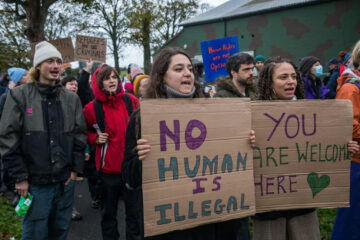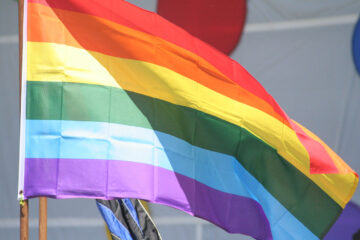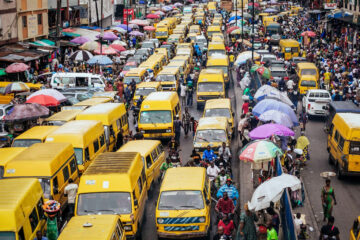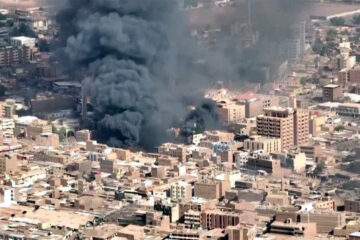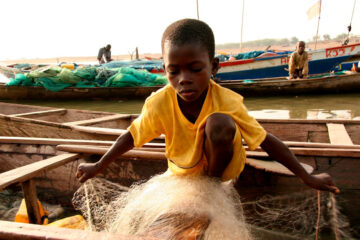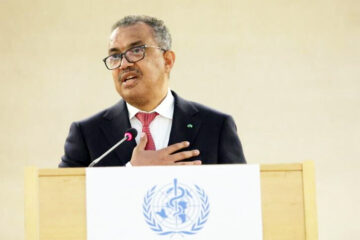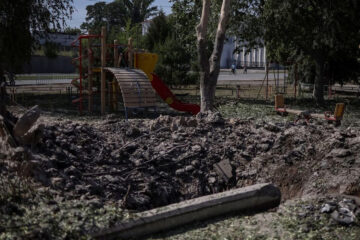SHIMA BAHRE
I am a woman, a refugee from Darfur, and the co-founder of an organisation committed to supporting other Sudanese refugee women in Kampala, Uganda. I have heard about the localisation process in humanitarian aid, but I do not feel its effect. What I do feel, and experience on a daily basis, are the numerous ways women – especially refugee women – are discriminated against in the humanitarian system.
My experiences have taught me that, wherever we go, women need to stand up for ourselves and take leadership because no one understands the issues women from war zones face better than we do ourselves.
When I was 12 years old my family fled to Kalma camp, the largest camp for displaced people in Darfur, home to more than 120,000 people. The war and insecurity were reason enough for me to leave my country, but when I was 16 I started being a human rights activist and helping women who had been raped.
My work at the time consisted of writing down the details of what happened to the women who came to Kalma from villages to escape fighting and violence – mostly mothers and young girls. It made me a target because talking about rape was taboo, and recording the women’s stories was evidence of the crimes being committed in the war.
When I finished high school I decided to leave. I wanted to go to university, but people like me were not safe in Sudan. The government attacked women’s rights activists in universities and in their homes, and sometimes kidnapped them. I was scared and wanted a future, so I left.
I spent one year in South Sudan, where I continued my work with women, before arriving in 2012 in Kampala, where I registered as a refugee and attended university, earning a degree in International Relations and Diplomatic Studies.
The issues we face
Sudanese women are often in a difficult situation when they arrive in Kampala. Many are alone with their children. Most don’t speak English – the language you need to start building a life here. Their husbands are either dead, in prison, or missing. The women struggle to find work and struggle to feed their children. The ones who live with their husbands often experience domestic abuse when the men lash out because of financial stress.
Many women have also been subjected to circumcision. They want to go to the hospital to receive medical care, but they do not know where to go, and fear judgement from the Sudanese community.
A Sudanese woman will never speak about her rape to a man. She will never tell a man that she is having difficulties giving birth because of circumcision or that her husband treats her badly. She will never speak to a man about early marriage or young girls getting married to older men.
These topics are considered shameful and taboo. Men commit many of the acts women suffer from, and women are afraid that they will be further victimised if they speak up. If a woman tells a man she is being beaten by her husband, the man will often ask the husband if it is true and the husband will only beat his wife more. Many Sudanese men will say these issues should be solved within the family and discourage women from seeking outside support.
At the same time, Sudanese women also struggle to talk about these topics with Ugandan and Western aid workers who come from different cultures and speak different languages. But they will talk about them with other women from their own community, women who understand their experiences and speak their language.
Representing and helping ourselves
This is why refugee-led organisations like the one that I founded with fellow Sudanese refugee women are so important. We know the needs of Sudanese people. We can offer support on sensitive and intimate issues in ways that other organisations cannot, and we can act as a bridge to international humanitarian organisations to make sure people in our community are receiving food, healthcare, and the other essential support they need.
Unfortunately, however, the humanitarian system is replicating the inequalities we face in our private lives. As a Sudanese woman leading an organisation, I feel like I am being left behind and marginalised, not because I want to be, but because the humanitarian system doesn’t recognise the additional barriers I face and the responsibilities I carry in my daily life.
In Sudanese society, women are expected to get married, have children, take care of the home and take a secondary role to men. We have to fight for opportunities to have a role outside of the house and to be in leadership positions. We need to get paid for the humanitarian work we do in order to make it sustainable.
Most international humanitarian organisations offer voluntary positions to women like me, even if we do as much work as people who are given a salary. Some organisations offer allowances of around $150 per month as compensation to volunteers. That is not enough to even pay rent, let alone feed our children or cover healthcare and education expenses.
The Grand Bargain was supposed to change this, but in my experience it hasn’t. Instead of focusing full time on humanitarian work, I had to open a bakery to earn money to support myself and my family.
If we get paid for our humanitarian work, we will be able to increase the time we dedicate to it and take more control over our own lives. There is a saying in Arabic: “He who does not own his own fuel does not own his own decisions.”
Having funding to open a nursery at our organisation would also be a good starting place to allow us to increase our working hours and an important recognition of the multiple responsibilities we have as women.
International humanitarian organisations should dedicate a specific percentage of funding to build the capacity of refugee women-led organisations to help these basic goals become a reality.
Instead, donors expect women refugee-led organisations to compete for the same grants male-led organisations apply for and report on them on the same schedule. This is not feasible. Men have women taking care of their children, cooking their meals, and cleaning their houses while they are working. Women are doing both.
Even me, I am currently pregnant with my third child. When I give birth, I will need to stay close to my baby for at least the first three months to feed and care for them. I won’t be able to leave my child to put in an eight-hour work day. I will need more time to complete the work I usually do, and I will need donors to understand this and adjust accordingly.
But the humanitarian sector does not make any accommodations for the realities we face as refugee women. As a result, it is difficult for women refugee-led organisations to reach the same level as organisations led by men. This means that we are often denied a seat at the table to talk about the situations we face and to propose solutions.
Without being able to raise these issues ourselves, no one will fight for us because men cannot imagine what we experience. If the humanitarian sector truly wants to address our needs, it is time to address the structural inequalities in the sector that prevent refugee women from leading for ourselves.
Produced with the support of URBAN REFUGEES, a not-for-profit organisation dedicated to improving the lives of refugees and internally displaced persons in urban areas.

